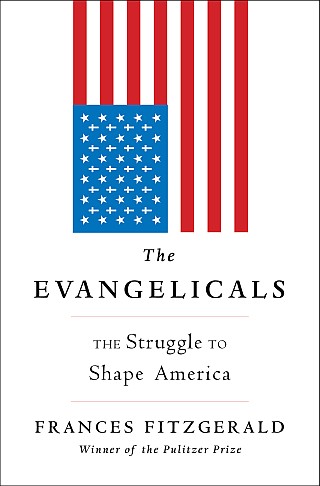
The Evangelicals
The Struggle to Shape America
فرمت کتاب
ebook
تاریخ انتشار
2017
نویسنده
Frances FitzGeraldناشر
Simon & Schusterشابک
9781439143155
کتاب های مرتبط
- اطلاعات
- نقد و بررسی
- دیدگاه کاربران
نقد و بررسی

February 13, 2017
Pulitzer Prize–winning journalist and historian FitzGerald (Fire in the Lake) provides a compelling narrative history of “the white evangelical movements necessary to understand the Christian right and its evangelical opponents.” Dispatching pre-20th-century events in the first three chapters, and the period from 1900 to 1945 in just two more, FitzGerald focuses most closely on evangelical culture and politics from the rise of Billy Graham through the Obama presidency. She skillfully introduces readers to the terminology, key debates, watershed events, and personalities that have populated the history of white American evangelical Protestant culture in the last half-century. She explains issues such as fundamentalism, biblical inerrancy, Christian nationalism, civil religion and anticommunism, the charismatic movement, and abortion, and introduces such diverse figures as Karl Barth, Jerry Falwell, Reinhold Niebuhr, and Pat Robertson. Also present, though less prominently featured, are members of the evangelical left, such as Ron Sider and James Wallis. Attention to intraevangelical theological and political differences is especially welcome at a time when evangelical and even Christian have become stand-ins for the Christian right. A substantial bibliography and endnotes will assist readers who wish to delve more deeply into specific topics. This is a timely and accessible contribution to the rapidly growing body of literature on Christianity in modern America.

Starred review from February 15, 2017
Another superb work by renowned but long-absent political journalist FitzGerald (Vietnam: Spirits of the Earth, 2002, etc.), this one centering on the roiling conflict among American brands of Christianity.The author opens with a brief revisitation of a moment when progressive evangelicalism seemed ascendant: the presidential campaign of Jimmy Carter, which soon gave way to a reborn kind of hidebound Christianity in the form of the anti-humanist Christian right, "declaring holy war against 'secular humanism' and vowing to mobilize evangelicals to arrest the moral decay of the country." Thus ever it has been, from the burned-over revivalism of the 19th century to the latest religio-revanchisms from Colorado Springs or Lynchburg. By FitzGerald's account, this revival of the right truly has been a revival, for after the Scopes Monkey Trial of 1925, "most informed people thought fundamentalism dead." However, through rightists such as Billy Graham, fundamentalism was reborn as a political force. FitzGerald traces the culture wars that have since riven the country to the divisions between liberal and right-wing visions of Christianity as well as larger elements of society. In the 1960s, she notes, "most conservative Christians were horrified by the counterculture, but a number of young evangelical ministers, most of them Pentacostals, saw the potential in it for conversions." Granted that many of the converted became conservative themselves and that the Christian right is, in the author's view, mostly a reaction against the social revolution of that era, what has happened since is truly fascinating: the right wing of evangelical American Christianity has made a devil's bargain with politicians such as the sitting president, who claimed the Bible as his favorite book but "did not seem to remember even a verse of it." In making that bargain, it also may be making a last stand, since millennials are abandoning religion in droves, and those who do go to church are "on the whole more sympathetic with progressive positions than with those of the right." Overflowing with historical anecdote and contemporary reportage and essential to interpreting the current political and cultural landscape.
COPYRIGHT(2017) Kirkus Reviews, ALL RIGHTS RESERVED.

November 15, 2016
A historian to be reckoned with as winner of the Pulitzer Prize, the National Book Award, and the Bancroft Prize, FitzGerald here considers what the evangelical movement has meant to America. She begins in the 1700s and 1800s with the Great Awakening and moves to the present, showing that evangelism is not a strictly right-wing phenomenon.
Copyright 2016 Library Journal, LLC Used with permission.

























دیدگاه کاربران